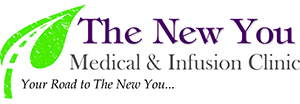Pericarditis Treatment in Irving, TX

The thin fluid-filled sac that encapsulates your heart is called the pericardium. When any of the layers or fluid that make up the pericardium become inflamed, a condition referred to as pericardial disease or pericarditis can occur. Pericarditis usually presents in men between the ages of 20 and 50 years old and causes chest pain due to irritated layers of the pericardium rubbing together.
While most cases improve on their own, chronic pericarditis will likely require medical attention. To schedule an appointment with a healthcare provider in Irving that specializes in pericarditis treatment, call (817) 203-2760 or contact The New You Medical & Infusion Clinic online.
Pericarditis Symptoms
The main symptom associated with pericardial disease is chest pain. It is often described as a sharp or "stabbing" pain. The pain worsens when you lie flat, and it is often relieved by sitting up and leaning forward. The pain often worsens when you cough, take a deep breath or try to swallow. Other pericarditis symptoms can vary but may include:
- Back pain
- Neck or shoulder pain
- Anxiety
- Fever
- Rapid heart beat
- Difficulty breathing, especially when lying flat
- Persistent dry cough
- Swelling in legs, ankles or feet (especially in constrictive pericarditis)
It is important to note, chest pain is often indicative of a myocardial infarction. Emergency medical treatment should be sought if you believe you are suffering from a heart attack .
Pericarditis Causes
Pericarditis can occur due to a number of different causes and can also occur without a known cause. Viral, bacterial, fungal and parasitic infection are all potential triggers of pericarditis, with a viral infection typically the most common culprit.
Pericarditis can also occur as a reaction to, or complication of, other conditions, including:
- Chest injury
- Heart attack or cardiac surgery
- Autoimmune diseases like lupus or rheumatoid arthritis
- Kidney failure
- Cancer, tumors or cancer treatments like radiation therapy
- Certain medications
Pericarditis Diagnosis & Treatment
If you suspect you have pericardial disease, your healthcare provider will conduct a physical exam, listen to your heart and lungs, and interview you about your medical history—especially if you have experienced any recent infections, had heart surgery, or have any diseases like kidney failure known to increase pericarditis risk. Blood tests and other testing, including chest X-ray, electro- and/or echocardiogram, MRI or CT scan, or cardiac catheterization may be ordered.
Because pericarditis is often recurrent after your first episode, it cannot necessarily be cured, but each episode can be resolved with medication and rest. Depending on the cause of your pericarditis, the appropriate medication will be prescribed. If you are suffering from bacterial pericarditis, antibiotics will be prescribed, or antifungals will be used to treat fungal pericarditis. Anti-inflammatory drugs in high doses (often ibuprofen) will be at the core of your treatment protocol, but follow-up is crucial to avoid damage to your liver. Steroids may be prescribed over long periods of time, but you should discuss with your healthcare provider the risks of long-term steroid use and whether it can be avoided. Colchicine is a drug often prescribed for recurrent pericarditis or pericarditis that cannot easily be resolved otherwise.
If your pericarditis develops into constrictive or acute pericarditis, diuretics for swelling, heart medications and even surgery may be necessary. A pericardiocentesis is one type of procedure you may require which drains excess fluid from the pericardium cavity. Another procedure, a pericardiectomy, removes part or all of the pericardium to relieve constriction which is making it difficult for your heart to pump.
Determining whether you have pericarditis, getting prompt treatment to prevent life-threatening complications, and learning which conditions may trigger repeat episodes of pericarditis are all key to maintaining your heart's health. Request more information about pericarditis and your testing and treatment options today. Call (817) 203-2760 or contact The New You Medical & Infusion Clinic online.
The New You Medical & Infusion Clinic
Address
100 Grapevine HwyHurst, TX 76054
(817) 203-2760
https://www.newyoumedclinic.com/
Hours
Mon:
10:00 am - 6:00 pm
Tue:
10:00 am - 6:00 pm
Wed:
10:00 am - 6:00 pm
Thu:
10:00 am - 6:00 pm
Fri:
Closed
Sat:
Closed
Sun:
Closed

